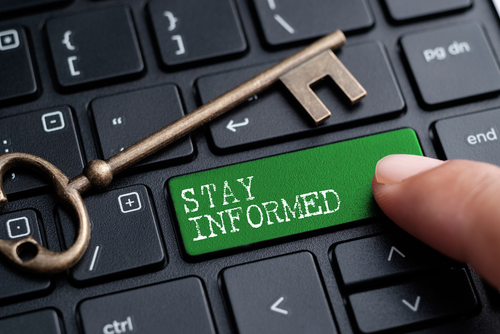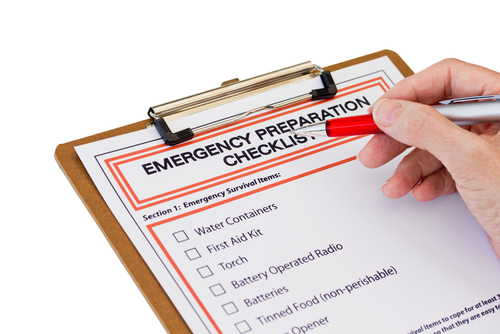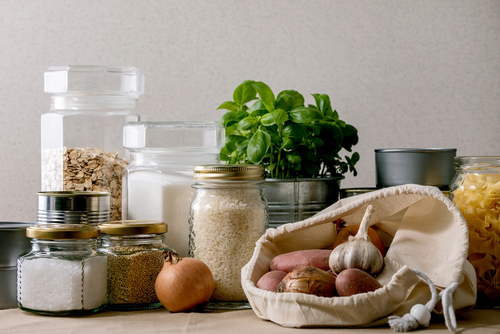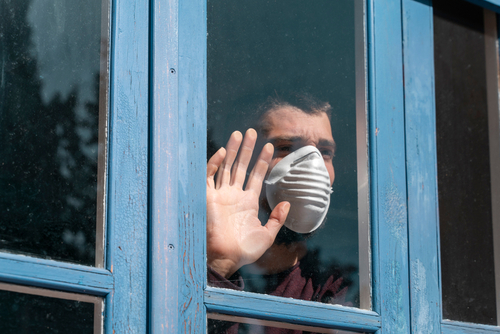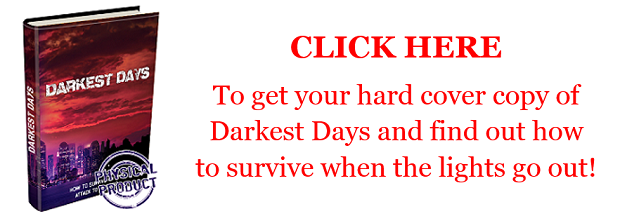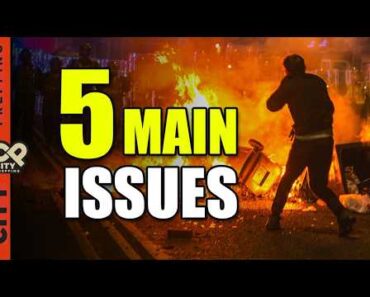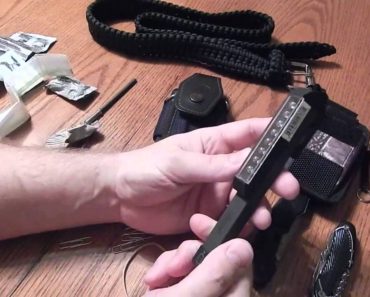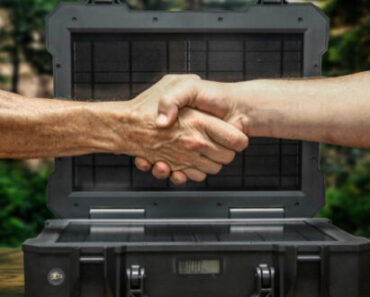If there’s anything that 2020 has taught us, it’s that disasters don’t come in neat little packages, totally isolated and presented to us one at a time, so that they are easy to handle.
I don’t know where we ever got the idea that it might, as bad things in life tend to gang up on us anyway. Why would the bad things that affect a whole lot of people be so polite as to knock on our doors one at a time?
For those who missed it, we just had our first hurricane of the year, with another one about to hit. While Hurricane Hanna was a rather small hurricane, as far as hurricanes go, it dumped 24 inches in places and did its fair share of damage. As I sit here writing this, Hurricane Isaias is about to hit the Florida peninsula. About the only good thing that can be said about that, is that the people of Florida are used to dealing with hurricanes.
COVID-19 didn’t go on vacation for Hurricane Hanna and I doubt it will for the new one that’s coming. For that matter, the various protests and mob violence didn’t take a day off either. Fortunately, there wasn’t any rioting or even protests going on in the area affected by the hurricane, so nobody had to try and make their way safely through the mob while trying to get out of the rain.
Everyone has been saying that 2020 has been a year for disasters and it has. That doesn’t mean that it’s the only year we’ve ever had disasters in, but the disasters we have had have been much more visible than what we’re used to having. Some of that is media hype, trying to make something out of nothing. Those are obvious, as the supposed disaster disappears after a few days. The ones that the hype doesn’t go away after a few days are the ones to be concerned about. They might still be hyped to get clicks, but they are real problems none the less.
I think it’s fairly safe to say at this point that disasters and problems aren’t going to go away. In case you don’t remember it, there have been people just about every year who have been talking about how disasters have been increasing. While that fear-mongering usually gets debunked before long, there’s always another disaster coming down the pike. It’s not going to stop. We’re not going to go back to a time when there weren’t any disasters.
Rather, we need to learn how to live in a world full of disasters. Rather than preparing for the big disaster that’s coming “someday,” we need to work on making it through today’s disaster while preparing for the one that’s coming next week. It probably won’t be a TEOTWAWKI event, but it will be a problem we have to deal with nevertheless.
Stay Informed
Early warning is just as important now as it ever was. The sooner you know what’s coming, the sooner you can prepare for it. Granted, we all try to stay prepared for just about anything; but there are always last-minute preparations that we need to do as well.
I’ve taken to starting my day by checking the news. I look to see what the National Hurricane Center has to say, checked the latest COVID-19 stats for my city, state, the nation, and the world, and check the few news sources that I trust (there aren’t many of those). Then I look to see what others are saying about the news stories that seem important, trying to get the other side of the story and verify the information that I got from the first source. In all this, I’m looking more for potential problems I’ll have to deal with, than anything else.
One of the problems we all face with gathering information today is that there is very little real news out there. The left-leaning media has forsaken news in place of commentary and political hit pieces. But I’ll have to say that the right-leaning sources aren’t much better. Most of that is commentary as well, just from the other point of view. But then, they don’t claim to be news sources; they claim to be commentators. That’s, and their political slant is the real difference.
Little that passes as news has any real impact on us as far as disasters are concerned anyway. Other than the political unrest we’ve seen in the last decade or so, and all the violence it has brought about, there’s little that those news sources deal with, that truly affects our ability to be ready for the next disaster, unless you count the politicizing of COVID.
That’s why I like to go to the source. If I want to know about COVID, I go to sites like the CDC and Worldometers.com; places that provide actual data. Even then, it’s important to understand the political leanings of the site you’re checking, just to know how to interpret what you’re seeing.
Look Ahead
The hardest thing for any of us to do is to see tomorrow before it gets here. Nevertheless, that’s exactly what we need to do. Ideally, we need to be able to see what problems are coming, before they get here. That’s not always possible, but that doesn’t mean we shouldn’t try.
When it comes to natural disasters, the government can actually help us here. I mentioned earlier that I start my day checking the National Hurricane Center’s (NHC) website at nhc.noaa.gov. Since I live in a hurricane zone, that’s important information for me. I need to know what potential hurricanes there are out there and whether or not they are coming my way.
But the NHC isn’t the only government organization that puts out useful data like that. The USGS (US Geological Survey) has a website where they track earthquakes. If I lived in California, I guarantee you I’d be checking that one every day. Tornado HQ had a similar map that shows where severe weather is occurring. Then there’s the National Weather Service, the parent organization for the NHC, which has a lot of useful information online.
Granted, all of these provide us with historical information, not future projections, with the exception of weather and hurricane forecasts. Nevertheless, knowing what has been happening will clue us into what might be coming. Scientists use this information in that way and we can learn to do so too.
The internet can provide us with a wide assortment of information if we can just manage to get through all the advertising and find the websites that house that information. It takes a bit of digging; but once we find it, we’ve got something we can use to help us look ahead.
Stay Stocked
We all stockpile supplies to get us through a disaster. That gave us the ability to drive by the grocery stores and laugh at all the people standing in line a couple of months ago. But how are our stockpiles today? Have you been using what you have stored? Even more importantly, have you been restocking?
As time goes on, I become more and more of a believer in rotating my stock. While I still have food that is packaged and stashed away as part of my long-term storage, I also have a pantry of food and other necessary supplies that I work out of. That pantry has a good three months’ worth of food and it serves as both my day-to-day pantry and the first stage of my survival pantry.
One key that this year has made extremely obvious is the need to keep replacing things in my stockpile. We’ve seen several surges of shortages in the grocery store, as people have been panic buying every time there’s been a rumor of the stores running out of something. In following through on this, they’ve turned the rumors into reality.
While I’ve been using what’s there on a regular basis, I would have to say that there’s more of just about everything in my pantry, especially COVID-19 specific items, than there was at the beginning of the year, other than Clorox wipes. I’ve given up ever seeing those again and I’m making my own now.
That’s not the only thing I’m making at home. I’ve taken to stockpiling not only products that I need to get through the second, third, and umpteenth wave of the pandemic, but the supplies to make those products myself if I have to. Since I know we can’t depend on the supply chain to keep stores stocked, I’m making sure that my family will be fine, even when the stores are empty.
The main reason there’s more of those items in my pantry than before is that I’ve adopted a “when you see it, buy it” attitude. Last week I was in Home Depot and they had one package of surgical masks. I bought it, even though I’ve been using cloth masks instead of surgical masks. I just think that cloth masks work better if they are properly made. But those surgical masks are useful for giving to others when I have to interact with them.
Something similar happened in the grocery store; they had extra-large gloves, so I bought a box, even though I have enough for now. I’ve had trouble locating anything larger than medium, so I took advantage of the opportunity while it was there, even though they weren’t exactly what I wanted.
None of us can tell if the grocery store is going to have those things next week. We’re already looking at the next wave of panic buying, so who knows what’s going to be flying off the shelves now? Rather than waiting to find out, I’m making sure that I stay stocked. I already know that I’m using more disinfectants and other supplies than I expected to, so it only makes sense to increase my standard stocking level.
Just Do It
Probably the biggest lesson I’ve learned this year is to adopt the Nike motto and “Just do it.” When the pandemic started, early this year, I was busy watching things fly off the shelves. Every day I’d check my local grocery stores, Wal-Mart, and the pharmacy, looking to see how fast things were moving. But I wasn’t buying; I was depending on my stockpile to see me through.
It took about a week for me to realize that I wasn’t really as prepared for a pandemic as I should be. But by then I had to scramble to find disinfectants and rubbing alcohol. I couldn’t buy more gloves and nobody had masks. Fortunately, I was able to get Clorox, alcohol, and other critical supplies, but I wasn’t able to get enough of the aforementioned Clorox wipes.
Sadly, this wasn’t the only time this year where I’ve been a bit slow on the uptake. While I’ve been working hard to try and stay ahead of the various disasters and waves of problems caused by COVID, I’ve managed to miss the boat a few other times.
I used to keep a 55-gallon drum of gasoline in my shed so that I’d have gas for an emergency. Due to some personal problems in my life, I no longer have that tank, because I no longer have that house. So when it looked like Hurricane Hanna was coming my way, the only gas I had was what was in my vehicle’s tanks and two, two-gallon gas cans.
My wife works for the city as their Environmental Affairs Manager. Part of her job requires that she be in the city’s Emergency Operations Center when hurricanes and other emergencies happen. That means we can forget about bugging out, at least until everyone else has left the city. By then, you can forget about finding any gas at a gas station. There probably won’t be any for at least the first 200 miles. So it has become extremely important for us to have a reserve supply of gas, just for hurricanes.
Now here’s the kicker. Just the week before Hanna, I was looking at some five-gallon steel Jerry cans online. I put off buying them, deciding to wait until after payday. Then we got the first news about Hanna, and it was too late to buy those cans.
Fortunately, we didn’t need that gasoline; we made it through the hurricane without a general evacuation. But I’ll tell you, I was a bit uncomfortable, knowing that I could have gotten the Jerry cans in on time, but not having done it. I’m still sore from where I was kicking myself.
Here’s the point; when you get an idea that you need to do something to protect your family and ensure their survival, just do it. Don’t wait; don’t try and figure it out. There’s a reason why you’re feeling like you need to do that, even if you don’t understand why. Just accept that your instincts are good and that there really is a reason why you need to do that.
A month before that, I was visiting my daughter’s house, where I still have some things stored from before my marriage (we’re a bit short on space). For some reason, I felt that I needed to pick up my Coleman dual-fuel stove and Coleman dual-fuel lantern and bring them home, even though I had no idea where I was going to store them (they’re in the trunk of my car). During the hurricane, we lost power and I ended up using them both.
As I said, there’s a reason for those feelings. It could be that something in your subconscious has figured out what you need to do and your conscious mind just isn’t getting the message. Don’t worry about it, if it has the potential of making your family more secure, it’s worth doing. Just do it.


